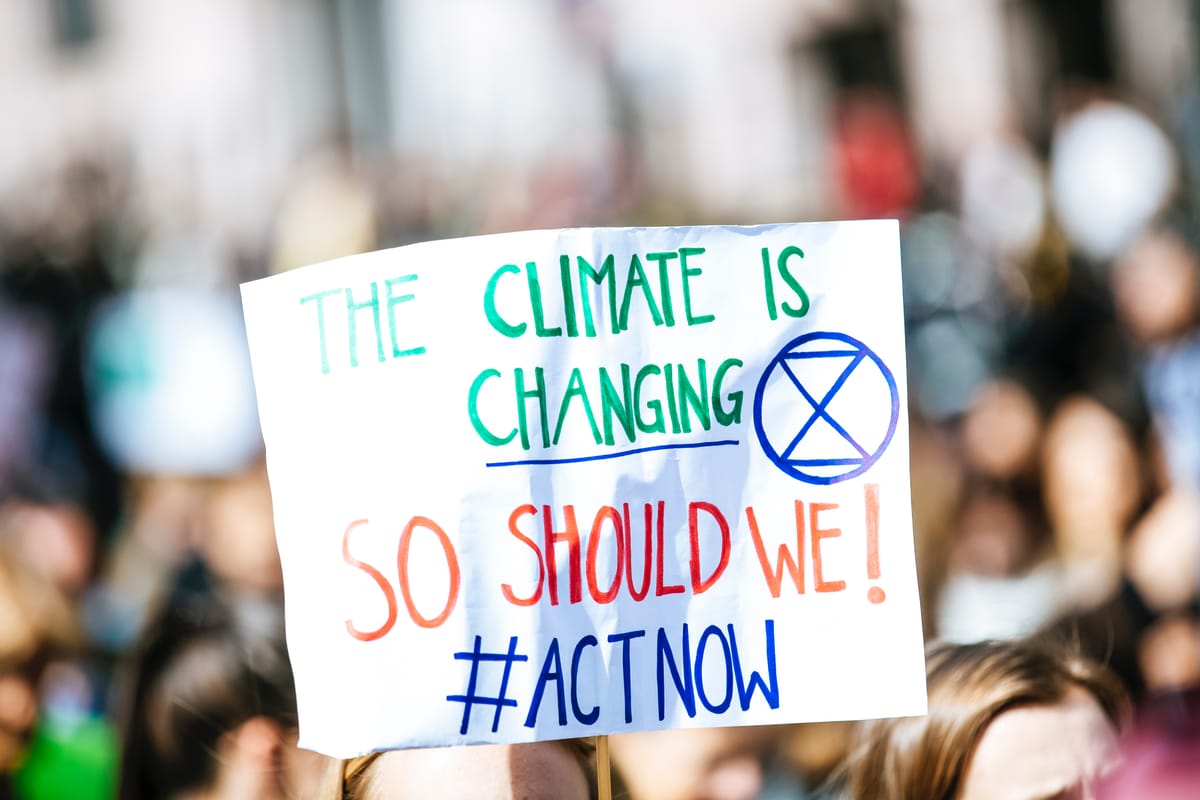What has COP26 achieved?
A run-down on the rather underwhelming conclusions from COP26

COP26 in Glasgow started and ended in the same way – optimism tinged with a sense of inaction. Hordes of world leaders and famous faces descended upon the Scottish city, with impassioned speeches trying to set the tone for a conference many had described as the last chance to control runaway climate change. Sir David Attenborough, in his powerful address, told the room that the world was looking at them to work together and rewrite the future.
The problem with this speech was that some of the most important men in the world were not in the room to hear it. China’s President Xi Jinping chose to remain in China, as did Russia’s Vladimir Putin and Brazil’s Jair Bolsonaro. Together, these countries symbolise some of the biggest challenges in the path to net-zero – cleaning up manufacturing, reducing dependence on fossil fuels, and ending rampant deforestation. Their absence was not a good omen for the conference, and the agreements signed have undoubtedly suffered as a result.
The conference itself was questioned by some climate campaigners. President Joe Biden made his way to Scotland on his private 747, travelling to the climate conference in a motorcade made up of 25 heavy American SUVs flown specially from the United States. He did not stay for long, as the US President obviously cannot be seen negotiating at a summit that Xi Jinping has refused to attend – he made the return journey back to Washington after attending just two days of the fifteen-day summit. While he was here, he joined about 30,000 delegates flown in from around the world at great expense—both financial and environmental. Some of these delegates were hosted on two cruise ships hired specially for the occasion, seemingly by someone with a twisted sense of humour, considering cruise ships are effectively floating climate disasters. Never one to miss out on a chance to embarrass the UK publicly, PM Boris Johnson admitted he would be flying back to London rather than use the train. In a world that has learned to meet virtually, it feels strange to try and save the planet at a conference that is estimated to have emitted over 100,000 tonnes of CO2 in just two weeks – more than the emissions of 250,000 UK residents in the same time period.
Fortunately, some agreements were struck that will more than offset this. The first pledge was made on the second day of the conference, with over 100 countries agreeing to reduce methane emissions by 30% by 2030. While the total reduction is not exactly ambitious, it is nevertheless an important factor that will contribute towards overall climate goals, as methane is a greenhouse gas that is approximately 85 times more potent at trapping heat than CO2 while in the atmosphere. This agreement should function as a way of measuring how serious signatories are about adhering to commitments they have made, with the short nine-year timespan meaning significant progress should be visible in a short timescale. The majority of methane emissions are concentrated and well known – for example leaky natural gas equipment and landfills—and as such improvements should be easy to implement. While not legally binding, this is a commitment that most should achieve without further persuasion. Some countries have gone beyond the 30% number, with Canada promising a 75% reduction by 2030. This, unfortunately, will not be enough to make up for the list of notable absences, including Russia, China, India, and Australia, who make up a sizeable portion of worldwide methane emissions.
The second day of COP26 brought another welcome announcement. 141 countries, covering more than 90% of the world’s forests, agreed to end and even reverse deforestation by 2030. While a 2014 attempt at a similar agreement failed rather miserably, this agreement has several crucial differences. Despite the absence of Presidents Bolsonaro, Putin and Jinping—or perhaps because of it—this new agreement has been signed by Brazil, Russia and China, all of whom have been cutting down vast swathes of their forests. £14 billion of financing has already been committed to support the transition for developing countries, with plans for direct payments to countries such as Indonesia and the Congo in return for protecting their forests. Governments have also received support from private corporations in this agreement, with more than thirty financial institutions agreeing to end investment in activities that lead to deforestation.
Some financial institutions have also agreed to consider the environment when planning their investments. Firms controlling £95 trillion of assets—40% of the global total—have said they will ‘align themselves’ with the Paris Agreement, aiming to limit warming to 1.5C. While this has clearly been done for selfish reasons—green investments have been performing better than traditional infrastructure and will eventually be the only option—it is still a net benefit to us all, as there is now more capital available to deploy technologies that will help in the transition to net zero. The agreement has been signed by a voluntary and self-regulated group known as the ‘Glasgow Financial Alliance for Net Zero’ and is completely non-binding. However, it is hoped that the sheer momentum of these firms turns their promise into a self-fulfilling prophecy.
The next major agreement took some time, but it was a pleasant surprise when it finally came. The USA and China, in a rare joint declaration, committed to working together in order to achieve the 1.5C goal set in the Paris Agreement. Nothing specific was mentioned, possibly due to the absence of both countries’ leaders, but the very fact that they have committed to collaboration going forward is cause to celebrate. A war of egos between these two superpowers would have been disastrous for the rest of the world, as both countries have a vital role to play in how we all transition to net zero. A virtual summit between the two leaders has been scheduled, and this will play an important role in the legacy of COP26.
COP26 came to a rather underwhelming conclusion, with the final day’s headline agreement being aggressively passive in its wording. The first statement was that all parties should pledge to cut their emissions further – after meeting again next year. While yearly meetings are a good way of allowing the public and the rest of the world to police a country’s climate commitments, delaying the first round of promises feels like a pointless move. Current agreements will only limit warming to 2.4C, well beyond what is considered disastrous. Developed countries agreed to significantly increase funding available to poorer states to aid them in their transition to net zero. This is not legally binding, and considering that total funds provided have not yet reached the lower, previously agreed number, developing nations are not delighted at this deal. In another promise with no weight, countries agreed to end subsidies for fossil fuels, with no deadline for them to do so. The final, controversial agreement was a statement to ‘phase down’ coal use, with the phrase replacing ‘phase out’ in the final hours of the conference after a late intervention by China and India, another unlikely partnership. The move drew widespread criticism but is an understandable one that deserves to be considered beyond the headlines.
It is important to not forget what has happened at COP26. In a year’s time, COP27 will be held in Egypt, and it is imperative that pressure is maintained on governments and companies. Change will only happen if the decision-makers feel it is the best option for them personally—not for the planet—and so politicians and brands must be reminded that this is something important.









